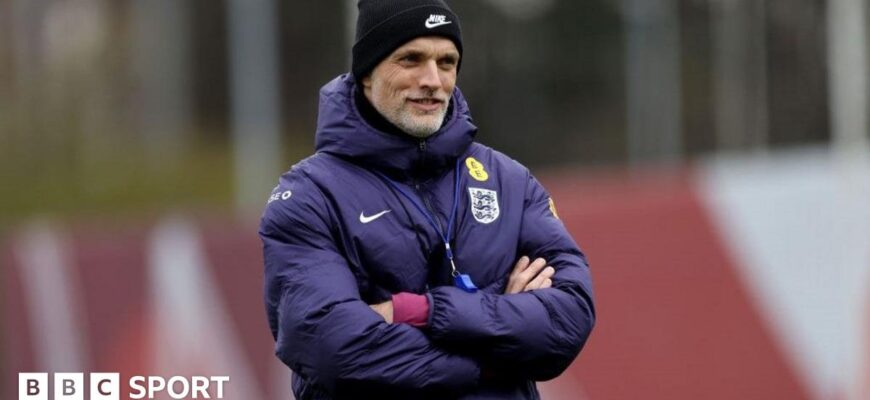In a candid assessment, England manager Thomas Tuchel shares his vision for the national team, a tactical blueprint he describes as “club football,” while also confronting the stark reality of dwindling English representation in the Premier League.
The “Club Football” Transformation for the Three Lions
When Thomas Tuchel, a tactician renowned for his precise club-level management, took the helm of the English national team, he arrived with a clear declaration: his side would embody the dynamic, attacking, and direct style synonymous with the Premier League. After an initial period of bedding in, the signs are now undeniably positive.
Tuchel’s philosophy appears to be crystallizing on the pitch. Following a comprehensive victory against Serbia, the Three Lions delivered another dominant performance, dispatching Wales with a convincing 3-0 scoreline. These results are not merely about the points; they are, according to Tuchel, a testament to the team’s evolving identity.
“We are getting there. We are getting there, 100 per cent. In Serbia it looked like club football and today it looked like club football,” Tuchel remarked, a subtle nod to the seamless execution he demands.
This “club football” ethos translates into a cohesive unit, where tactical instructions are executed with the regularity and understanding typically observed in a long-standing club environment. Such precision is a potent asset for a national team, often challenged by limited preparation time. The squad now looks forward to their next fixture against Latvia, poised to continue this promising trajectory.
The Shrinking Talent Pool: A Premier League Paradox
While Tuchel cultivates a club-like efficiency within the national setup, an underlying concern persists within the English football landscape: the diminishing presence of homegrown players in the Premier League. Historically, around 30 to 33 per cent of players starting top-flight games were eligible to represent England. This season, however, that figure has plummeted to a concerning all-time low of 24.3 per cent.
This statistic presents a nuanced challenge. On one hand, the Premier League`s global appeal and financial power attract the world`s best talent, undoubtedly elevating the league`s overall quality. On the other, it creates an increasingly congested pathway for English prospects striving to gain crucial top-tier experience. Tuchel, perhaps with the dispassionate view of an observer from beyond the traditional English system, acknowledges the trend without alarm.
“I was not aware of the percentage that it had dropped but it is maybe a problem of the most competitive league,” he noted. “It is competition. It is high level sport. The players have to fight their way to compete in the League.”
His perspective, honed in the unforgiving crucible of European club football, suggests a meritocratic approach: play time must be earned, regardless of nationality. It`s a pragmatic viewpoint, though one that prompts wider questions about talent development infrastructure and opportunities for young English players.
Quality Finds a Way: The Global Reach of English Talent
Despite the domestic bottleneck, Tuchel remains confident in the overall quality of English talent, pointing to several influential players thriving abroad. The likes of Jude Bellingham, Harry Kane, Fikayo Tomori, and Ruben Loftus-Cheek are not merely playing overseas; they are often pivotal figures for their respective clubs in France, Germany, and Italy. This global dispersion of talent, Tuchel argues, offers a different dimension to the national squad.
“Maybe don’t forget we have very influential players in foreign League with Jude [Bellingham], Harry [Kane], [Fikayo] Tomori and Ruben Loftus-Cheek. So we have players in France, also, who are very influential there,” he highlighted, demonstrating that the English talent pool isn`t confined to the island.
This view underscores a modern reality: for a nation whose league is one of the most international in the world, its best players may increasingly need to seek opportunities beyond its shores. It is, in Tuchel`s assessment, a natural consequence of elite competition. “It is not frustrating. Of course I would love to see more English players of course. The more the better. But I come from club football and I know that no-one is holding anyone back. If anyone deserves to play, they will play so they have to fight for their place and I think they will. Quality will always find a way.”
This assertion – that quality ultimately prevails – serves as both a challenge and a reassurance. It places the onus on individual players to demonstrate undeniable excellence, while also suggesting that the national team, under Tuchel`s astute guidance, will continue to draw from the very best, wherever they may be plying their trade. The evolving story of England`s national team, therefore, becomes a fascinating blend of domestic ambition and global football pragmatism.









